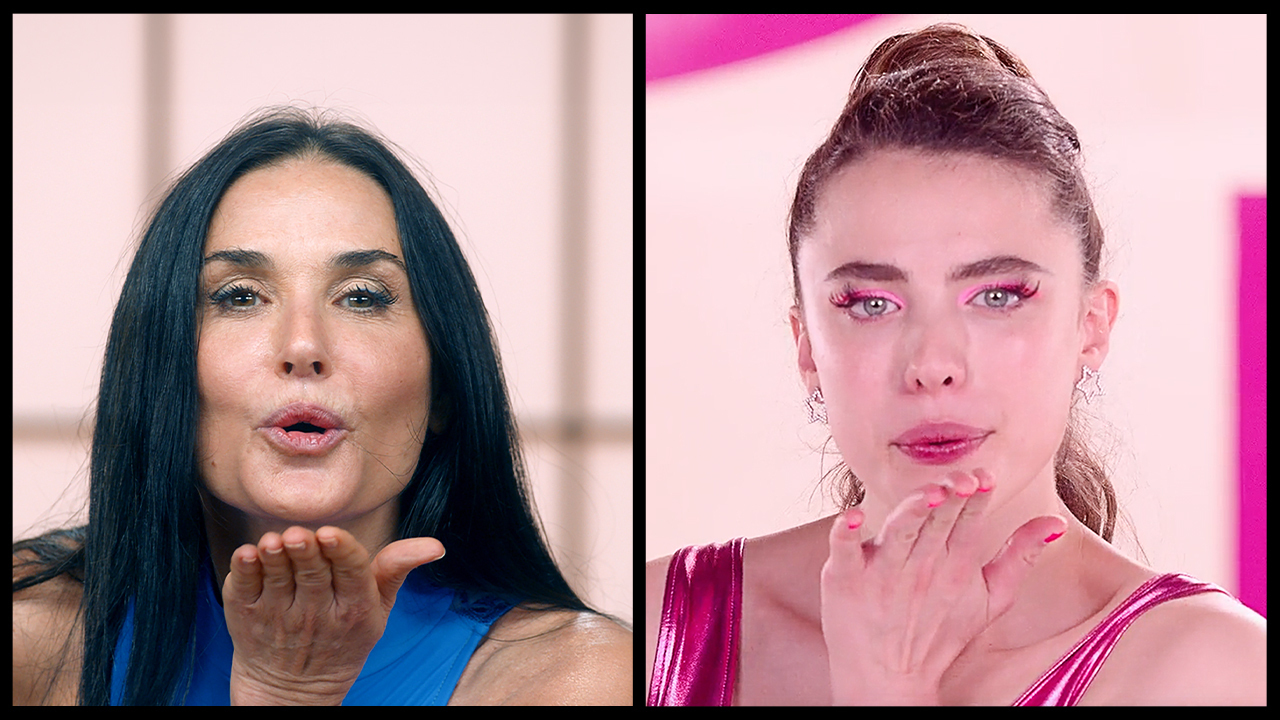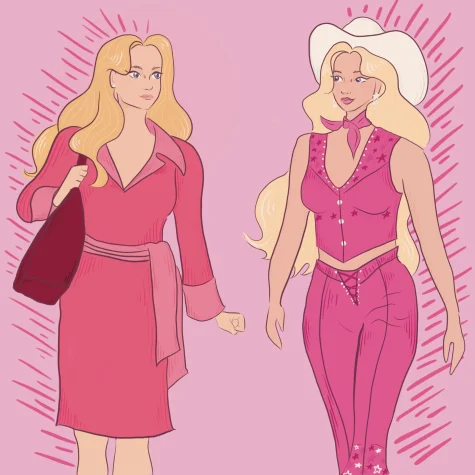
Sienna Miller | Head Editor
December 5, 2024
Fictional films, literature, and art are reflections of society, offering a mirror to the world around us. When a new idea or concept in these mediums strikes an emotional chord, it’s because it simply exposes a hidden truth of our real-world experiences. For example, feminist films have long played a crucial role in challenging societal norms and offering new ways to portray women in successful roles.
“Film can be a beautiful way to understand humanity,” said senior Isabella Noble. “It often reflects men because our world is so male-dominated, but the best films include all perspectives. Those are the films that matter.”
Films have the power to challenge stereotypes, inspire change, and provide a platform for underrepresented voices, helping viewers reflect on their own perceptions of gender. By showcasing women in a variety of roles—whether as professionals or leaders—films like The Substance, Legally Blonde, and Barbie offer a broader, more inclusive vision of what women can achieve. Through storytelling, feminist films continue to shape a cultural shift towards greater representation, understanding, and empowerment.
One of the most recent additions to the feminist film canon is The Substance, which explores the struggles of a young woman trying to navigate a male-dominated industry while asserting her identity and voice. The film centers on a talented, ambitious woman who faces systemic barriers in her career, constantly fighting to be heard and valued in an environment that downplays her contributions. The Substance draws attention to the way women’s accomplishments are often overshadowed or ignored, offering a stark commentary on the gender dynamics still present in many professional spaces today. Through its portrayal of a woman pushing back against these forces, the film reinforces the necessity of representation and the importance of women seeing themselves as both capable and deserving of success. This film also addresses beauty standards using the sub-genre of body horror to illustrate that women who are expected to look perfect their entire lives often create something inhumane and destroy themselves. This film is a timely reminder that while progress has been made, the fight for gender equality in all fields is ongoing.

In 2001, Legally Blonde broke new ground with its portrayal of Elle Woods, a character who was initially dismissed as a “dumb blonde” but ultimately proved herself as both intelligent and capable. The film was ahead of its time, offering a feminist twist on the traditional rom-com formula. Elle’s journey to Harvard Law School challenged the stereotype that femininity and intelligence are mutually exclusive. Instead, it celebrated how women can be both fashionable and brainy, compassionate and ambitious, all at once. By showcasing a woman who refuses to conform to society’s narrow expectations of what a successful woman should look like, Legally Blonde reshaped the conversation about women’s roles in academia and beyond. The film was revolutionary in showing that women didn’t have to trade their feminine traits for success—they could embrace both and still excel.
In 2023, Barbie took the feminist conversation to another level with its vibrant, thought-provoking narrative. Directed by Greta Gerwig, Barbie became more than just a film about an iconic toy—it became a cultural movement. Through the character of Barbie, the film explores deep themes of identity, self-worth, and the constraints of societal expectations. Barbie’s journey of self-discovery, where she grapples with what it means to be a woman in a world that constantly imposes unrealistic standards, resonated with audiences of all ages. The film’s powerful feminist undertones woke many people up emotionally, encouraging viewers to reflect on their own lives and the roles they play in perpetuating or challenging stereotypes. Barbie was not just about rejecting the superficial image of perfection—it was about embracing one’s true self and the limitless possibilities that come with self-empowerment.
“I think Barbie was sort of a culture shock for our generation of women,” stated senior Sarah Desrosiers. “There’s a lot of hate for women circulating today, but I think this movie perfectly illustrated the feminist movement and how it’s not about men at all.”
These films, each resonating with different generations, emphasize the necessity of constant representation of strong, successful women in media. Barbie reminded audiences that feminism in film is not just about women breaking into traditionally male spaces, but also about reclaiming their own narrative and defining success on their terms. Legally Blonde showed that intelligence and femininity can coexist without compromise, while The Substance highlighted the importance of lifting up women whose stories have been marginalized for too long. Collectively, these films underscore the need for continued representation of diverse female experiences, illustrating that success comes in many forms and that women should be free to embrace their unique strengths without fear of judgment or limitation.

Leave a Reply